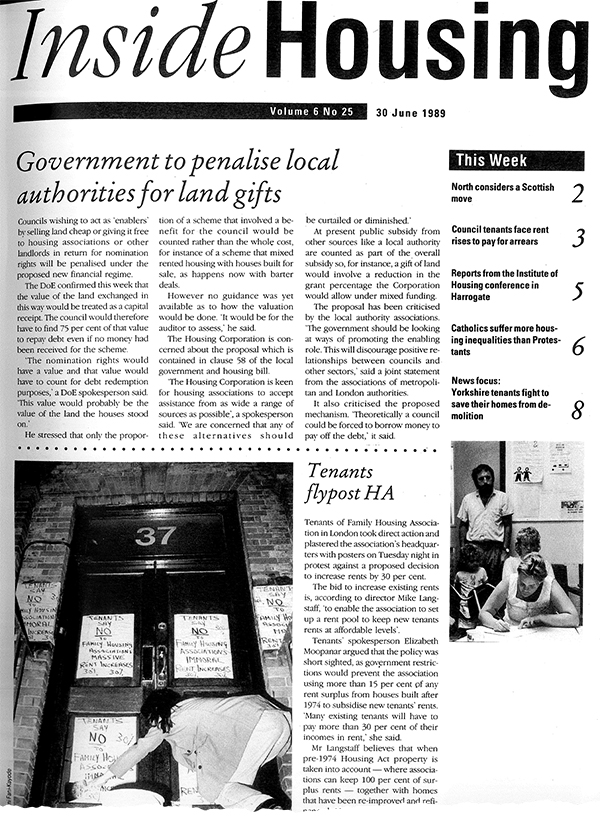You are viewing 1 of your 1 free articles
From the archive – housing associations ready fund to challenge court ruling
Inside Housing looks back at what was happening in the sector this week 10, 20 and 30 years ago
30 years ago
Councils wishing to act as ‘enablers’ by selling land cheap or giving it free to housing associations or other landlords in return for nomination rights faced being penalised under a proposed new financial regime.
The Department of Environment (DoE) confirmed that the value of land exchanged in this way would be treated as a capital receipt. The council would therefore have to find 75% of that value to repay debt even if no money had been received for the scheme.
“The nomination rights would have a value and that value would have to count for debt redemption purposes,” a DoE spokesperson said. “This would probably be the value of the land the houses stood on.”
He stressed that only the proportion of a scheme that benefited the council would be counted.
20 years ago
The government promised to kick-start its council resident empowerment policy by handing over £12m to fund the start-up costs for tenant compacts.
Councils were required to have the compacts operating by April the following year, although the government had conceded that many would not have formal agreements in place.
Speaking at a Chartered Institute of Housing conference, then-housing minister Hilary Armstrong said she wanted to see initiatives that would involve tenants who were not active in existing organisations.
Traditional tenant participation routes were also expected to be developed with training and funding for tenant organisations.
Ms Armstrong said that all councils must have at least “agreed the final outcomes they expect, with a clear action plan to achieve them” by the April deadline.
She stressed that she would not tolerate delays or excuses.
“Ways of working [set out in the compacts] will be locked in through best value. We will monitor how councils are performing,” she warned.
10 years ago
The biggest housing associations in London were considering ploughing funds into a war chest to challenge a court ruling that meant they were considered public bodies and so subject to more stringent legislation.
The G15, which represents the largest associations in the capital, was looking to back L&Q, which had lost a landmark court case the week previously. The judgement meant housing associations were exposed to judicial review proceedings under the Human Rights Act that could not have been taken against them if they were non-public bodies.
Stephen Howlett (above), then chief executive of Peabody and chair of the G15, said the group was considering supporting L&Q if it chose to appeal, and was readying a possible ‘appeal fund’ in anticipation.










